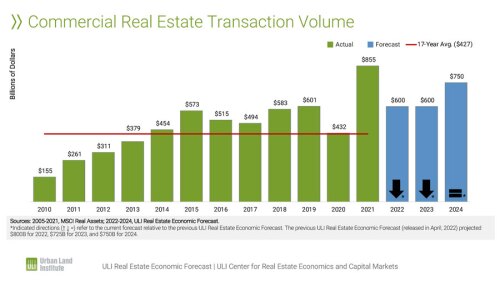As part of a wide-ranging panel on adapting development to new technologies, held at the ULI Japan Fall Conference in Tokyo in November, industry leaders discussed using e-commerce data to drive development decisions, adapting Japan’s traditional banking sector for the future, and creating a more innovative startup culture.
Japan was once notable for having a bank on nearly every street corner and took pride in the level of service offered, said Daisuke Yamada, chief digital innovation officer at Mizuho Financial Group. However, advances in technology—growing use of online and mobile banking—are making these facilities redundant. Though Yamada joked that the United States had pioneered online banking as a reaction to poor service in its banks, he admitted that changing banking habits are a headache for companies such as Mizuho, leaving them with underutilized real estate.
Bank branches could be repurposed for a range of community uses, which could also drive revenue, Yamada said. One topic that came up a number of times during the conference was the length of time that office space lies empty. Yamada mused that bank space could be adapted for use for other purposes outside banking hours. “Uber utilizes idle cars and Airbnb idle rooms, so perhaps we need a platform for idle workspace,” he said.
He also noted that foreign banks have found new ways to use their branches now that counter service is redundant. He cited Swedish bank SEB, which has maintained its branches in order to advise customers on financial services and new product lines.
Makoto Koyama, chief executive of Alibaba Japan, demonstrated the huge amount of data his company possesses about its customers. “The combination of AI [artificial intelligence] and big data is like having a crystal ball,” he said. He suggested that the data his firm holds on Chinese tourists in Japan—revealing where they spend time and money—could inform the future development of Japanese hotels and retail property.
However, in his closing remarks to the conference, Jon Tanaka, managing director at the Angelo Gordon investment firm and ULI Japan vice chairman, pointed to the challenge of using data responsibly. “A huge amount of data is being collected, and it is incumbent on society that we regulate how we use this.”
Andrew Klaus, Japan country manager for Innoviz Technologies, talked about progress toward driverless cars. Innoviz is a market leader in the development of lidar (light radar), a laser system that allows autonomous vehicles to detect objects in the surrounding area and create a map to allow it to navigate safely. The company is working with BMW and China’s HiRain Technologies. BMW plans to offer a car for sale by 2021 with “level 4” automation, meaning the human driver acts as a failsafe while the car primarily drives itself.
Seiichiro Yonekura, professor emeritus and head of the Institution of Innovation Research at Hitotsubashi University, in his keynote talk explained the foundations of Japan’s economic success and provided a recipe for it to reconnect with the dynamism it had before its lost decade.
Japan’s economic success after the devastation of World War II was based on a foundation of education, which led to innovation and growth. However, in the past two decades Japan has slipped in terms of gross domestic production per capita while its largest tech companies are minnows compared with U.S. giants like Amazon and Google.
He noted that Japan’s young people lack self-confidence in comparison with people in other nations. For example, a survey showed that less than half of Japanese students say they have self-confidence, compared with 72 percent of those in South Korea.
Yonekura advocated revitalizing the education system to encourage innovation and exporting the nation’s knowledge of renewable energy and smart-city technology to new growth markets in Africa.


